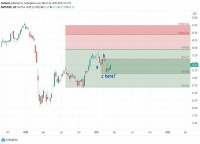|
Opalesque Industry Update - A study with financial advisers to make recommendations for imaginary clients
found that risk tolerance assessments resulted in wildly different interpretations,
which had a massive impact on client recommendations.
In one instance, an adviser recommended a 'very low' level' of risk for an imaginary client while another recommended a 'very high level'. For another, advisers were evenly split between recommending low, medium, or high levels of risk. The study, which was conducted by behavioural finance experts Oxford Risk, found advisers gave 'remarkably different judgements' on how much investment risk was suitable for clients with the same hypothetical information, and asset allocations were "scattershot". Even in cases where advisers agreed on the suitable risk levels, they disagreed on what kind of portfolio to recommend to clients. Analysis of the results of the study, conducted in partnership with South African firm Momentum Investments and South Africa's professional body The Financial Planning Institute, found recommendations 'were closer to totally random than totally consistent'. The report Under the Microscope: 'Noise' and investment advice highlights the influence of 'noise' in the advice process driving variations which cannot be explained. 'Noisy' errors can be caused by irrelevant factors such as advisers' current mood, the time since their last meal, or the weather. Oxford Risk is calling for increased use of technology and algorithms to help advisers deliver more consistent support to clients and avoid issues over assessments of risk tolerance and asset allocation. It says the most effective noise cancelling remedy is to employ software to guide decisions, so they become more consistent. Once a specific framework for the measurement of risk tolerance, risk capacity and other relevant factors is established it can be run at scale and speed, the report adds. Greg B Davies, PhD, Head of Behavioural Finance, Oxford Risk said: "Like the Decision Review System (DRS) used in cricket or the Television Match Official (TMO) in rugby, technology can be employed to greatly increase consistency and accuracy. "But in the end when the margins are extremely tight it should be the umpire's call. So should it be in the world of investment advice." In the study, adviser characteristics seemed predictive of recommendations with university-educated advisers making lower risk assessments than average, while married advisers were lower risk than single advisers and those on salaries made higher risk recommendations than those on commission or fees. Greg B Davies commented: "Identifying noise isn't about eradicating inconsistencies. It's about eradicating unjustifiable ones and evidencing justifiable ones." Oxford Risk, which builds software to help wealth managers and other financial services companies assist their clients in making the best financial decisions in the face of complexity, uncertainty, and behavioural biases, has developed a proprietary algorithm which ranks products, communications, and interventions for their suitability for each client at a particular time.
|
Industry Updates
'Noisy' errors by wealth managers/financial advisers can be caused by irrelevant factors, says study
Tuesday, May 25, 2021
|
|





 RSS
RSS








